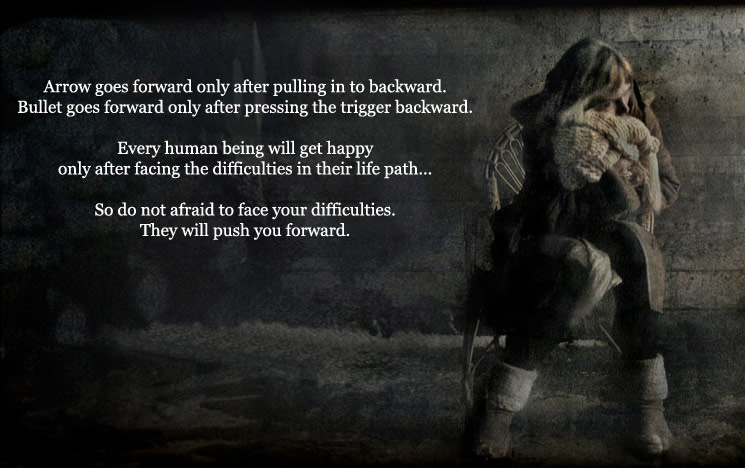skip to main |
skip to sidebar
Inspirational Quotes And Pictures
Ebadi now lectures law at the University of Tehran and is a campaigner for strengthening the legal status of children and women, the latter of which played a key role in the May 1997 landslide presidential election of the reformist Mohammad Khatami. As her applications were repeatedly rejected, Ebadi was not able to practice as a lawyer until 1993, while she already had a law office permit. She used this free time to write books and many articles in Iranian periodicals, which made her widely known. Following the Iranian revolution in 1979, conservative clerics insisted that Islam prohibits women from becoming judges and Ebadi was demoted to a secretarial position at the branch where she had previously presided. She and other female judges protested and were assigned to the slightly higher position of "law expert." She eventually requested early retirement as the situation remained unchanged. She was admitted to the law department of the University of Tehran in 1965 and in 1969, upon graduation, passed the qualification exams to become a judge. After a six-month internship period, she officially started her judging career in March 1969. She continued her studies in University of Tehran in the meanwhile and received a master's degree in law in 1971. In 1975, she became the first woman to preside over a legislative court. In 2009, Ebadi's award was allegedly confiscated by Iranian authorities, though this was later denied by the Iranian government. If true, she would be the first person in the history of the Nobel Prize whose award has been forcibly seized by state authorities. Shirin Ebadi (Persian: شيرين عبادى – Ŝhirin Ebādi; born 21 June 1947) is an Iranian lawyer, a former judge and human rights activist and founder of Defenders of Human Rights Center in Iran. On 10 October 2003, Ebadi was awarded the Nobel Peace Prize for her significant and pioneering efforts for democracy and human rights, especially women's, children's, and refugee rights. She was the first ever Iranian, and the first Muslim woman to have received the prize. As a lawyer, she is known for taking up cases of dissident figures who have fallen foul of the judiciary. She has represented the family of Dariush Forouhar, a dissident intellectual and politician who was found stabbed to death at his home. His wife, Parvaneh Eskandari, was also killed at the same time.
blogger templates | Blogger























No comments:
Post a Comment